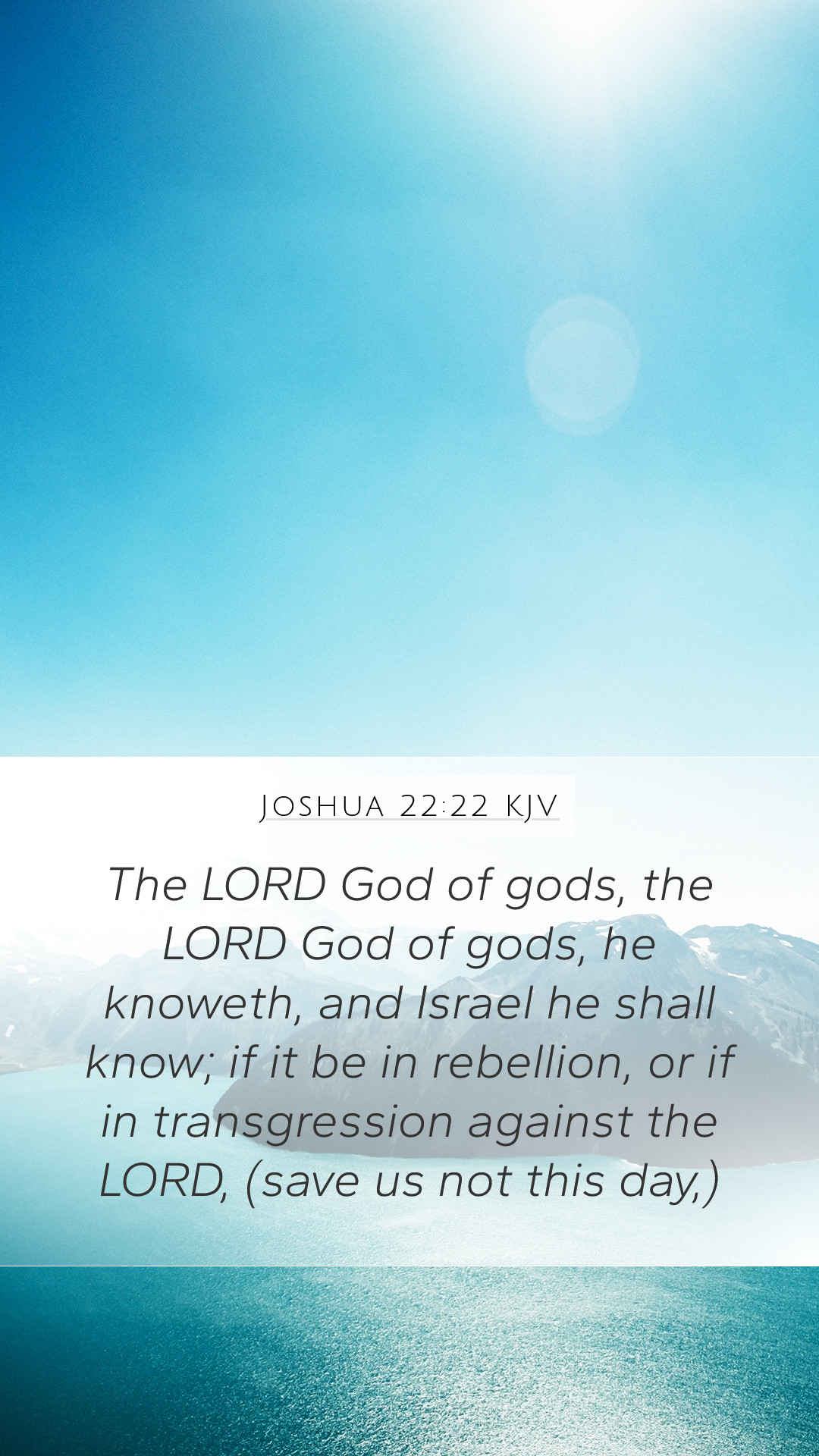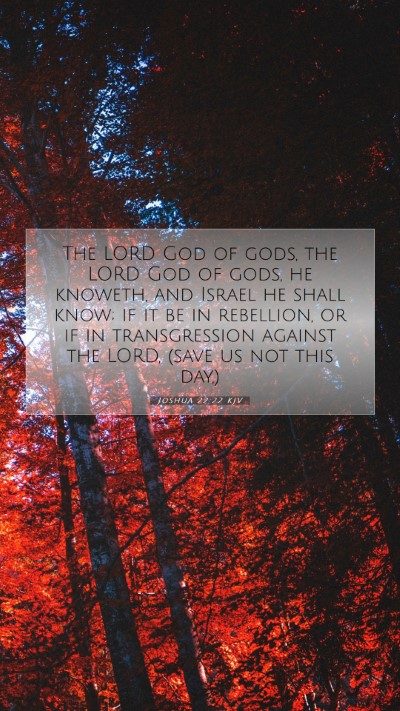Bible Verse Commentary: Joshua 22:22
Bible Verse: Joshua 22:22 - "The Lord God of gods, the Lord God of gods, he knoweth, and Israel he shall know: if it be in rebellion, or if in transgression against the Lord, save us not this day.”
Understanding the Context of Joshua 22:22
The passage in Joshua 22:22 is a part of a larger narrative where the tribes of Reuben, Gad, and the half-tribe of Manasseh had built an altar on the eastern side of the Jordan River. This act was perceived with suspicion by the other Israelite tribes, leading to fears of rebellion against God. The elders of Israel confront these tribes to inquire about their intentions.
Insights from Public Domain Commentaries
-
Matthew Henry:
Matthew Henry emphasizes the seriousness of the tribes’ actions, interpreting their altar as a potential symbol of rebellion. He notes that their declaration affirms God's omniscience. It illustrates how God knows the hearts of men, and that His justice will prevail if wrongdoing is present.
-
Albert Barnes:
Albert Barnes highlights the use of the term "God of gods," indicating God's supreme authority over all deities. In his analysis, he explains how this title underscores the seriousness of worshipping the true God and the consequences of turning away from Him. Barnes delves into the notion of collective accountability among the Israelites and their responsibility to remain united in worship.
-
Adam Clarke:
Adam Clarke expounds on the plea made by these tribes, suggesting that they are invoking God's knowledge to clear their names. He points out the importance of their integrity, stressing that if they built the altar with good intentions, God would vindicate them. Clarke's commentary reflects on the broader implications of accountability and the sincerity of worship among the Israelites.
Key Themes and Interpretations
-
Divine Omniscience:
This verse reiterates the belief that God is all-knowing, capable of discerning intentions and motives. It emphasizes that no action is hidden from God, reinforcing the theme of divine scrutiny in the community's life.
-
Unity Among Believers:
The neighboring tribes express their concerns in a way that reflects their cohesive identity as God’s chosen people, highlighting the need for unity in worship and doctrine.
-
Accountability:
The invocation of God’s knowledge serves as a reminder of communal responsibility. The tribes are careful to note that if they are guilty of disrespecting God, they are deserving of judgment.
-
Worship and Ritual:
This verse raises questions about the nature of worship, ritual, and the boundaries of acceptable practice in the expression of faith.
Cross References
- Numbers 32:11-15 - The original command regarding the settlements of Reuben and Gad.
- Deuteronomy 6:4 - "Hear, O Israel: The Lord our God, the Lord is one." This verse emphasizes the exclusivity of worship toward the one true God.
- 1 Samuel 16:7 - "For the Lord seeth not as man seeth; for man looketh on the outward appearance, but the Lord looketh on the heart." Reinforcing God's understanding of human intentions.
Application for Today’s Readers
This verse invites contemporary believers to reflect on their own intentions in worship and fellowship. It serves as a warning against divisions that arise from misunderstanding and encourages open communication among faith communities. The knowledge of God’s omniscience should inspire sincerity in worship, reminding believers to check their own hearts regularly.
Conclusion
Joshua 22:22 invites us to ponder critical theological concepts such as divine knowledge, community integrity, and the significance of worship. Through careful examination of this verse along with the insights from respected commentaries, we gain a deeper understanding of the historical and spiritual truths that continue to apply in our lives today. Engaging with this scripture helps enhance Bible study insights and provides valuable lessons for believers as they navigate their spiritual journeys.


